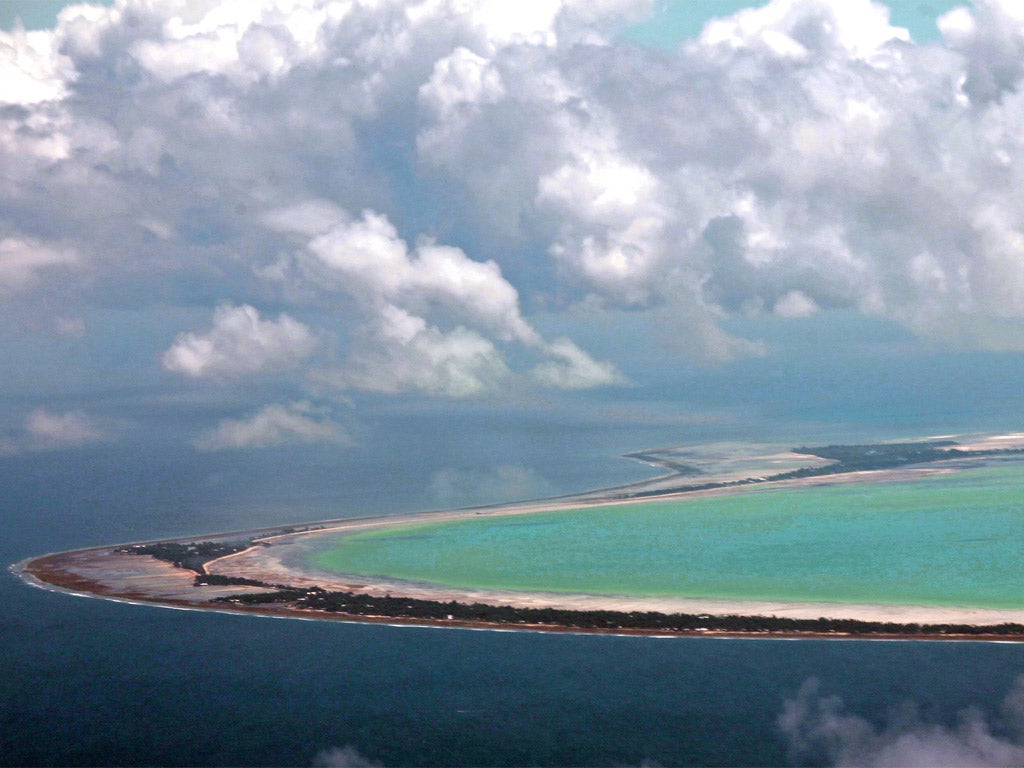Man from Pacific island of Kiribati in bid to live in New Zealand as world’s first climate refugee
Kiribati man begs New Zealand court to let him stay as there is ‘no future’ with rising seas

Your support helps us to tell the story
From reproductive rights to climate change to Big Tech, The Independent is on the ground when the story is developing. Whether it's investigating the financials of Elon Musk's pro-Trump PAC or producing our latest documentary, 'The A Word', which shines a light on the American women fighting for reproductive rights, we know how important it is to parse out the facts from the messaging.
At such a critical moment in US history, we need reporters on the ground. Your donation allows us to keep sending journalists to speak to both sides of the story.
The Independent is trusted by Americans across the entire political spectrum. And unlike many other quality news outlets, we choose not to lock Americans out of our reporting and analysis with paywalls. We believe quality journalism should be available to everyone, paid for by those who can afford it.
Your support makes all the difference.A man from one of the lowest-lying nations on Earth is trying to convince New Zealand judges that he’s a refugee – suffering not from persecution, but from climate change.
The 37-year-old and his wife left his remote atoll in the Pacific nation of Kiribati six years ago for higher ground and better prospects in New Zealand, where their three children were born. Immigration authorities have twice rejected his argument that rising sea levels make it too dangerous for him and his family to return to Kiribati.
So, on 16 October, the man’s lawyer, Michael Kidd, will argue the case before New Zealand’s High Court. Mr Kidd, who specialises in human rights cases, said he will appeal all the way to the Supreme Court if necessary.
Legal experts consider the case a long shot, but it will be closely watched, and might have implications for residents in many low-lying islands. Kiribati, an impoverished string of 33 coral atolls about halfway between Hawaii and Australia, has about 103,000 people and has been identified by scientists as among the nations most vulnerable to climate change.
In a transcript of the immigration case obtained by the Associated Press, the Kiribati man describes extreme high tides, known as king tides, that he says have started to regularly breach Kiribati’s defences – killing crops, flooding homes and sickening residents. New Zealand immigration laws prevent him being named.
The man said that, around 1998, king tides began regularly breaching the sea walls around his village, which was overcrowded and had no sewerage system. He said fouled drinking water would make people vomit, and that there was no higher ground for villagers to escape to.
He said returning to the island would endanger the lives of his two youngest children.
“There’s no future for us when we go back to Kiribati,” he told the tribunal, according to the transcript. “Especially for my children. There’s nothing for us there.”
The man’s lawyer said the family is currently living and working on a New Zealand farm.
Last week, an international panel of climate scientists issued a report saying that it was “extremely likely” that human activity was causing global warming, and predicted that oceans could rise by as much as one metre by the end of the century. If that were to happen, much of Kiribati would simply disappear.
Though that is a dire prospect, New Zealand’s Immigration and Protection Tribunal has said it is not addressed by laws dealing with refugees.
In a decision recently made public, tribunal member Bruce Burson said the legal concept of a refugee is someone who is being persecuted, which requires human interaction. He said the tribunal rejected the man’s claim because nobody is persecuting him.
The tribunal found there was no evidence that the environmental conditions on Kiribati were so bad that the man and his family would face imminent danger should they return.
Burson said the man’s claim was also rejected because the family’s predicament was no different than that faced by the wider population of Kiribati.
AP
Join our commenting forum
Join thought-provoking conversations, follow other Independent readers and see their replies
Comments